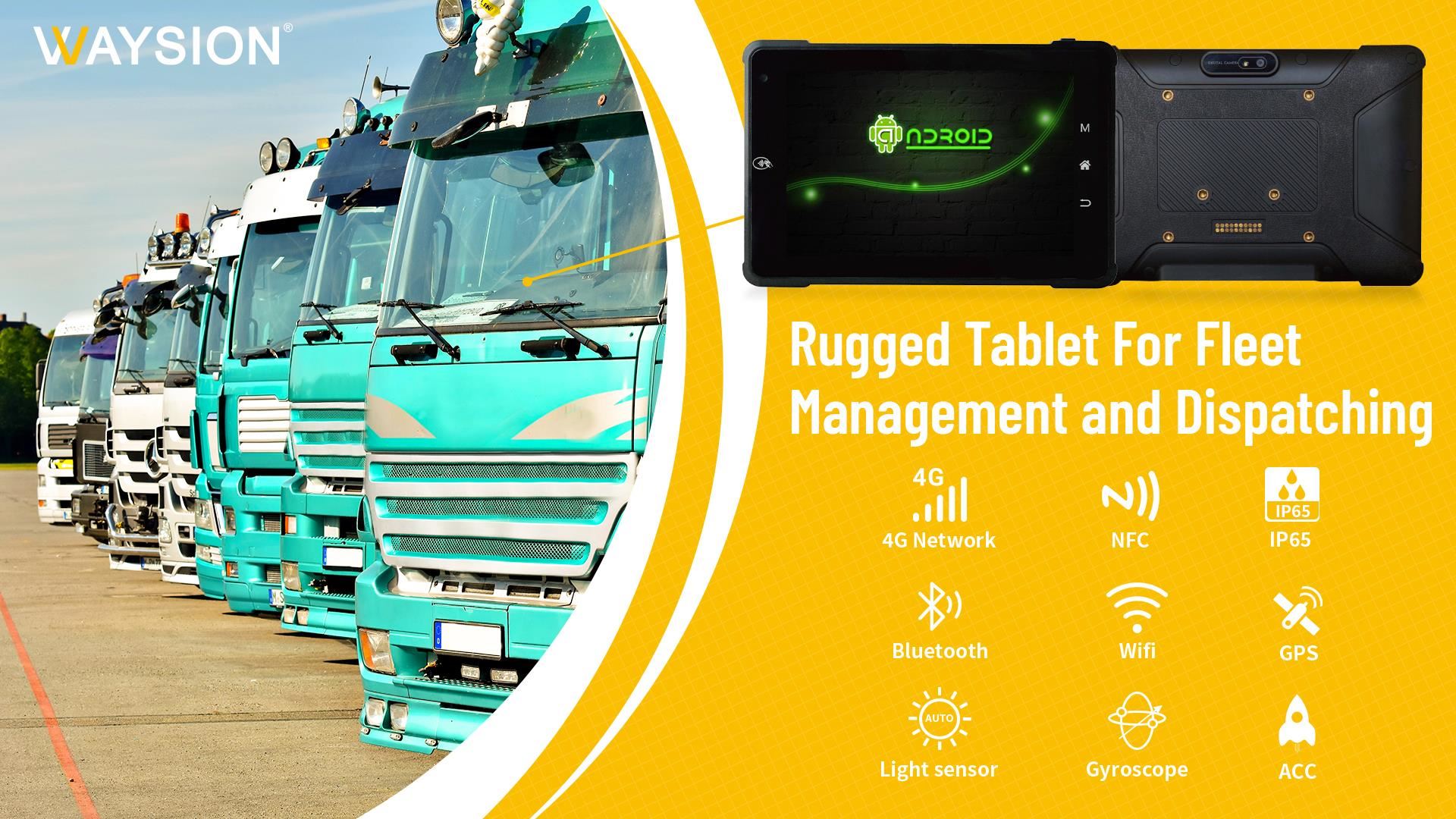Fleet Vehicle Management
Fleet vehicle management might sound like a niche topic, but it’s a vital part of many businesses. Whether it’s a delivery service, a sales force, or a transportation company, managing a fleet effectively can mean the difference between profit and loss. Let’s dive into what fleet management is all about and why it’s so crucial.

The Importance of Fleet Management
Operational Efficiency
One of the primary goals of fleet management is to ensure that all vehicles are running smoothly and efficiently. By maintaining vehicles properly, scheduling regular check-ups, and ensuring that drivers are well-trained, businesses can avoid unexpected breakdowns and delays.
Cost Savings
Effective fleet management can lead to significant cost savings. From reducing fuel consumption to negotiating better insurance rates, every dollar saved adds up. Fleet managers who pay attention to these details can make a substantial impact on the company’s bottom line.
Safety and Compliance
Safety is another critical aspect. Ensuring that all vehicles are in good condition and that drivers are following safety protocols helps prevent accidents. Moreover, compliance with local and national regulations is essential to avoid fines and legal issues.
Key Components of Fleet Management
Vehicle Acquisition
Choosing the right vehicles for your fleet is the first step. This involves considering the specific needs of your business, such as cargo capacity, fuel efficiency, and reliability.
Maintenance and Repairs
Regular maintenance is crucial to keep vehicles in top condition. This includes everything from oil changes to tire rotations. Having a system in place for timely repairs can also minimize downtime.
Fuel Management
Fuel is one of the largest expenses in fleet management. Implementing strategies to monitor and reduce fuel consumption can lead to significant savings. This could involve using fuel cards, tracking mileage, and promoting fuel-efficient driving habits.
Technological Advances in Fleet Management
Telematics Systems
Telematics involves the integration of telecommunications and informatics to send, receive, and store information about vehicles and their drivers. This technology can provide real-time data on vehicle location, speed, and performance.
GPS Tracking
GPS tracking allows fleet managers to monitor the location of their vehicles at all times. This not only helps in route optimization but also enhances security and ensures timely deliveries.
Fleet Management Software
Fleet management software can automate many of the tasks involved in managing a fleet. From scheduling maintenance to tracking expenses, these tools can help streamline operations and provide valuable insights.
Fleet Management Best Practices
Regular Maintenance Schedules
Sticking to a regular maintenance schedule can prevent minor issues from becoming major problems. This includes routine checks and timely servicing.
Driver Training Programs
Well-trained drivers are safer and more efficient. Providing ongoing training can help improve driving habits, reduce fuel consumption, and enhance overall safety.
Fuel Efficiency Strategies
Implementing strategies to improve fuel efficiency can lead to significant savings. This could involve optimizing routes, reducing idling time, and promoting smooth driving.
Challenges in Fleet Vehicle Management
Rising Fuel Costs
Fluctuating fuel prices can significantly impact operational costs. Fleet managers need to stay informed about market trends and seek ways to mitigate these costs.
Regulatory Compliance
Keeping up with changing regulations can be challenging. Ensuring that all vehicles and drivers comply with the latest laws is essential to avoid fines and penalties.
Driver Shortages
Finding and retaining skilled drivers is an ongoing challenge. Offering competitive pay, benefits, and a positive work environment can help attract and keep good drivers.
Sustainability in Fleet Management
Adopting Electric Vehicles
Electric vehicles (EVs) are becoming more popular as businesses look to reduce their carbon footprint. While the initial investment can be high, the long-term savings on fuel and maintenance can be substantial.
Reducing Carbon Footprint
Implementing eco-friendly practices, such as using alternative fuels and promoting efficient driving, can help reduce the environmental impact of your fleet.
Eco-Friendly Driving Practices
Encouraging drivers to adopt eco-friendly driving habits, like avoiding rapid acceleration and excessive idling, can contribute to sustainability goals.
The Role of Data Analytics in Fleet Management
Predictive Maintenance
Using data analytics to predict when a vehicle will need maintenance can prevent breakdowns and reduce downtime. This proactive approach can save time and money.
Driver Behavior Monitoring
Monitoring driver behavior through data analytics can help identify areas for improvement. This includes tracking speeding, harsh braking, and other risky behaviors.
Optimizing Routes
Data analytics can also be used to optimize routes, reducing travel time and fuel consumption. This not only improves efficiency but also enhances customer satisfaction.
Implementing a Fleet Management System
Choosing the Right Software
Selecting the right fleet management software is crucial. Consider your business’s specific needs and look for software that offers the features you require.
Integration with Existing Systems
Ensure that the new software can integrate with your existing systems. This will help streamline operations and reduce the learning curve for your team.
Training and Support
Providing adequate training and support for your team is essential for a smooth transition. This includes initial training sessions and ongoing support to address any issues that arise.
Cost Management in Fleet Operations
Budgeting and Forecasting
Effective budgeting and forecasting can help manage costs. This involves planning for future expenses and setting realistic financial goals.
Managing Operating Expenses
Keeping a close eye on operating expenses is crucial. This includes monitoring fuel costs, maintenance expenses, and other operational costs.
Cost-Benefit Analysis
Performing a cost-benefit analysis can help determine the most cost-effective strategies for your fleet. This involves comparing the costs and benefits of different options to make informed decisions.
Enhancing Fleet Safety
Driver Safety Programs
Implementing driver safety programs can reduce the risk of accidents. This includes regular safety training and promoting safe driving habits.
Vehicle Safety Features
Equipping vehicles with the latest safety features can enhance driver and passenger safety. This includes features like lane departure warnings, automatic braking, and backup cameras.
Accident Response Plans
Having a plan in place for responding to accidents can minimize the impact on your operations. This includes procedures for reporting accidents, handling repairs, and communicating with stakeholders.
Legal and Regulatory Aspects
Compliance with Transportation Laws
Staying compliant with transportation laws is essential. This includes keeping up with the latest regulations and ensuring that all vehicles and drivers meet the necessary requirements.
Insurance Requirements
Having the right insurance coverage is crucial. This includes liability insurance, collision insurance, and other necessary coverage.
Record Keeping
Maintaining accurate records is important for compliance and operational efficiency. This includes keeping track of maintenance records, driver logs, and other important documents.
Future Trends in Fleet Management
Autonomous Vehicles
Autonomous vehicles are expected to revolutionize fleet management. While the technology is still in its early stages, it has the potential to improve efficiency and reduce costs.
Advanced AI Integration
Integrating AI into fleet management can provide valuable insights and automate many tasks. This includes predictive maintenance, route optimization, and more.
Mobility-as-a-Service (MaaS)
MaaS is a growing trend that involves offering transportation services on a subscription basis. This can provide flexibility and convenience for businesses and consumers alike.
Case Studies in Effective Fleet Management
Success Stories
Looking at success stories from other companies can provide valuable insights and inspiration. These case studies highlight the strategies and practices that have led to success.
Lessons Learned
Learning from the experiences of others can help avoid common pitfalls. This includes understanding what works and what doesn’t in fleet management.
Industry Benchmarks
Benchmarking against industry standards can help gauge your fleet’s performance. This involves comparing key metrics like fuel efficiency, maintenance costs, and safety records.
Conclusion
Fleet vehicle management is a complex but essential part of many businesses. By focusing on efficiency, safety, and sustainability, companies can improve their operations and achieve significant cost savings. The future of fleet management looks promising, with advancements in technology and a growing emphasis on sustainability paving the way for new opportunities.
FAQs
What is fleet vehicle management?
Fleet vehicle management involves overseeing a company’s vehicle fleet to ensure efficient, safe, and cost-effective operations. This includes everything from vehicle acquisition to maintenance and compliance with regulations.
How can technology improve fleet management?
Technology can enhance fleet management through telematics, GPS tracking, and advanced fleet management software. These tools provide real-time data, optimize routes, and automate many tasks.
What are the benefits of electric vehicles in fleets?
Electric vehicles offer several benefits, including reduced fuel costs, lower maintenance expenses, and a smaller carbon footprint. They can also help companies meet sustainability goals.
How do you ensure driver safety in fleet management?
Ensuring driver safety involves implementing driver training programs, equipping vehicles with the latest safety features, and monitoring driver behavior. Regular safety audits and compliance with regulations are also crucial.
What future trends should fleet managers be aware of?
Fleet managers should keep an eye on trends like autonomous vehicles, advanced AI integration, and Mobility-as-a-Service (MaaS). These innovations have the potential to transform fleet management in the coming years.








